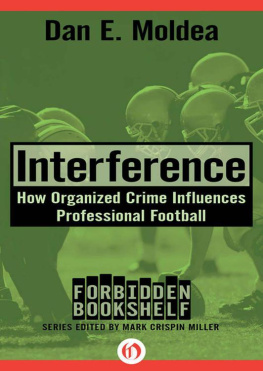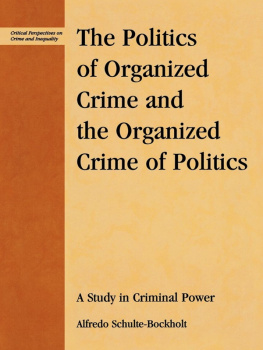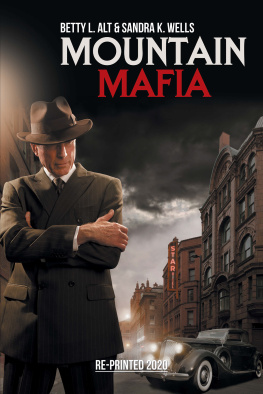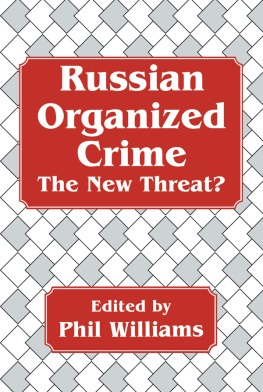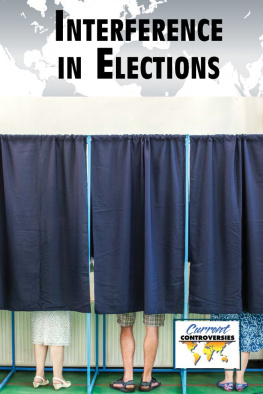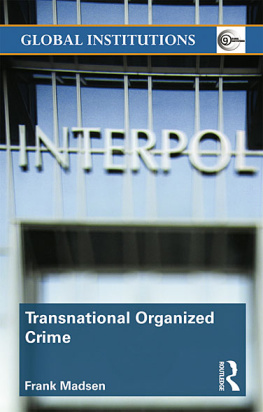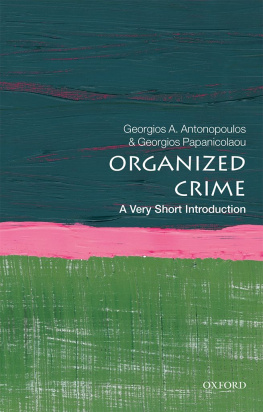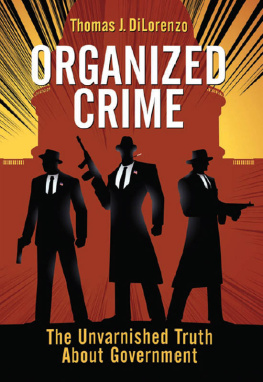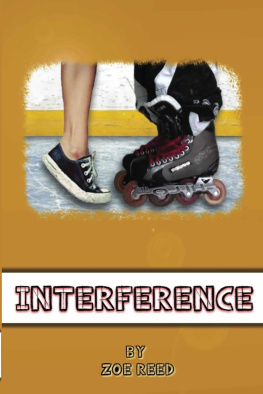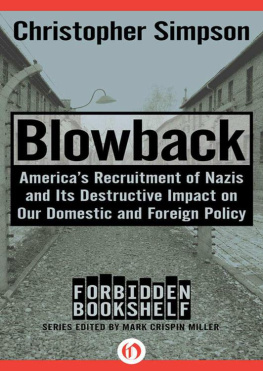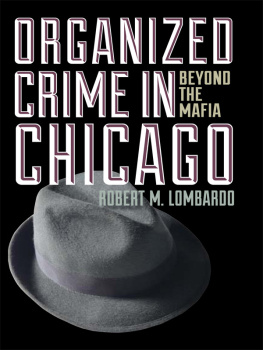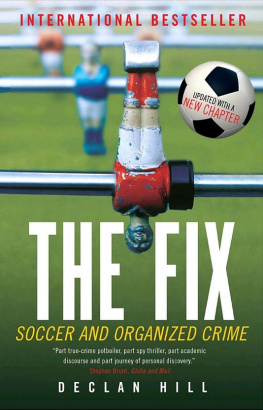Also by Dan E. Moldea
The Hoffa Wars: The Rise and Fall of Jimmy Hoffa
The Hunting of Cain: A True Story of Money, Greed, and Fratricide
Dark Victory: Ronald Reagan, MCA, and the Mob
The Killing of Robert F. Kennedy: An Investigation of Motive, Means, and Opportunity
Evidence Dismissed: The Inside Story of the Police Investigation of O. J. Simpson
A Washington Tragedy: How the Death of Vincent Foster Ignited a Political Firestorm
Confessions of a Guerrilla Writer: Adventures in the Jungle of Crime, Politics, and Journalism
Interference
How Organized Crime Influences Professional Football
Dan E. Moldea
With a New Afterword by the Author

To Mimi
Contents
Among the types of conduct detrimental to the NFL and professional football that call for serious penalties are the following:
1. Accepting a bribe or agreeing to throw or fix a game or to illegally influence its outcome.
2. Failing to promptly report any bribe offer or any attempt to throw or fix a game or to illegally influence its outcome.
3. Betting on any NFL game.
4. Associating with gamblers or with gambling activities in a manner tending to bring discredit to the NFL.
Any such conduct may result in severe penalties, up to and including a fine and/or suspension from the NFL for life.
NFL COMMISSIONER PETE ROZELLE
Introduction
I
We the people seem to have the freest book trade in the world. Certainly we have the biggest. Cruise the mighty Amazon, and you will see so many books for sale in the United States today as would require more than four hundred miles of shelving to display thema bookshelf that would stretch from Bostons Old North Church to Fort McHenry in South Baltimore.
Surely that huge catalog is proof of our extraordinary freedom of expression: The US government does not ban books, because the First Amendment wont allow it. While books are widely banned in states like China and Iran, no book may be forbidden by the US government at any level (although the CIA censors books by former officers). Where books are banned in the United States, the censors tend to be private organizations-church groups, school boards, and other local (busy)bodies roused to purify the public schools or libraries nearby.
Despite such local prohibitions, we can surely find any book we want. After all, its easy to locate those hot works that once were banned by the government as too obscene to sell, or mail, until the courts ruled otherwise on First Amendment groundsFanny Hill, Howl, Naked Lunch. We also have no trouble finding books banned here and there as antifamily, Satanic, racist, and/or filthy, from Huckleberry Finn to Heather Has Two Mommies to the Harry Potter series, just to name a few.
II
And yet, the fact that those bold books are all in print, and widely read, does not mean that we have the freest book trade in the world. On the contrary: For over half a century, Americas vast literary culture has been disparately policed, and imperceptibly contained, by state and corporate entities well placed and perfectly equipped to wipe out wayward writings. Their ad hoc suppressions through the years have been far more effectual than those quixotic bans imposed on classics like The Catcher in the Rye and Fahrenheit 451. For every one of those bestsellers scandalously purged from some provincial school curriculum, there are many others (we cant know how many) that have been so thoroughly erased that few of us, if any, can remember them, or have ever heard of them.
How have all those books (to quote George Orwell) dropped into the memory hole in these United States? As America does not ban books, other meansless evident, and so less controversialhave been deployed to vaporize them. Some almost never made it into print, as publishers were privately warned off them from on high, either on the grounds of national security or with blunt threats of endless corporate litigation. Other books were signed enthusiasticallythen dumped, as their own publishers mysteriously failed to market them, or even properly distribute them. But it has mainly been the press that stamps out inconvenient books, either by ignoring them, ormost oftenlaughing them off as conspiracy theory, despite their soundness (or because of it).
Once out of print, those books are gone. Even if some few of us have not forgotten them, and one might find used copies here and there, these books have disappeared. Missing from the shelves and never mentioned in the press (and seldom mentioned even in our schools), each book thus neutralized might just as well have been destroyed en masseor never written in the first place, for all their contribution to the public good.
III
The purpose of this series is to bring such vanished books to lifefirst life for those that never saw the light of day, or barely did, and second life for those that got some notice, or even made a splash, then slipped too quickly out of print, and out of mind.
These books, by and large, were made to disappear, or were hastily forgotten, not because they were too lewd, heretical, or unpatriotic for some touchy group of citizens. These books sank without a trace, or faded fast, because they tell the sort of truths that Madison and Jefferson believed our Constitution should protecttruths that the people have the right to know, and needs to know, about our government and other powers that keep us in the dark.
Thus the works on our Forbidden Bookshelf shed new lightfor most of us, its still new lighton the most troubling trends and episodes in US history, especially since World War II: Americas broad use of former Nazis and ex-Fascists in the Cold War; the Kennedy assassinations, and the murders of Martin Luther King Jr., Orlando Letelier, George Polk, and Paul Wellstone; Ronald Reagans Mafia connections, Richard Nixons close relationship with Jimmy Hoffa, and the mobs grip on the NFL; Americas terroristic Phoenix Program in Vietnam, US support for South Americas most brutal tyrannies, and CIA involvement in the Middle East; the secret histories of DuPont, ITT, and other giant US corporations; and the long war waged by Wall Street and its allies in real estate on New York Citys poor and middle class.
The many vanished books on these forbidden subjects (among others) altogether constitute a shadow history of Americaa history that We the People need to know at last, our country having now become a land with billionaires in charge, and millions not allowed to vote, and everybody under full surveillance. Through this series, we intend to pull that necessary history from the shadows at long lastto shed some light on how America got here, and how we might now take it somewhere else.
Mark Crispin Miller
Prologue:
Dealing with Myths
YEARS BEFORE HE BECAME president of the United States, actor Ronald Reagan portrayed Notre Dames George Gipp in the 1940 Warner Brothers movie Knute RockneAll-American. Gipp had died of pneumonia in December 1920 after an illustrious college football career. His purported deathbed request to Rockne, Win just one for the Gipper, was used during a locker room pep talk and helped to inspire Rocknes 1928 team in its upset victory against Army. And, as the Gipper incarnate, Reagan used the line to inspire voters to elect him to the California governors mansion and later the White House. To those who saw the movie and listened to Reagan utter those now-famous words, Gipp epitomized the virtues of good character, sportsmanship, and the right way of living.
Next page
